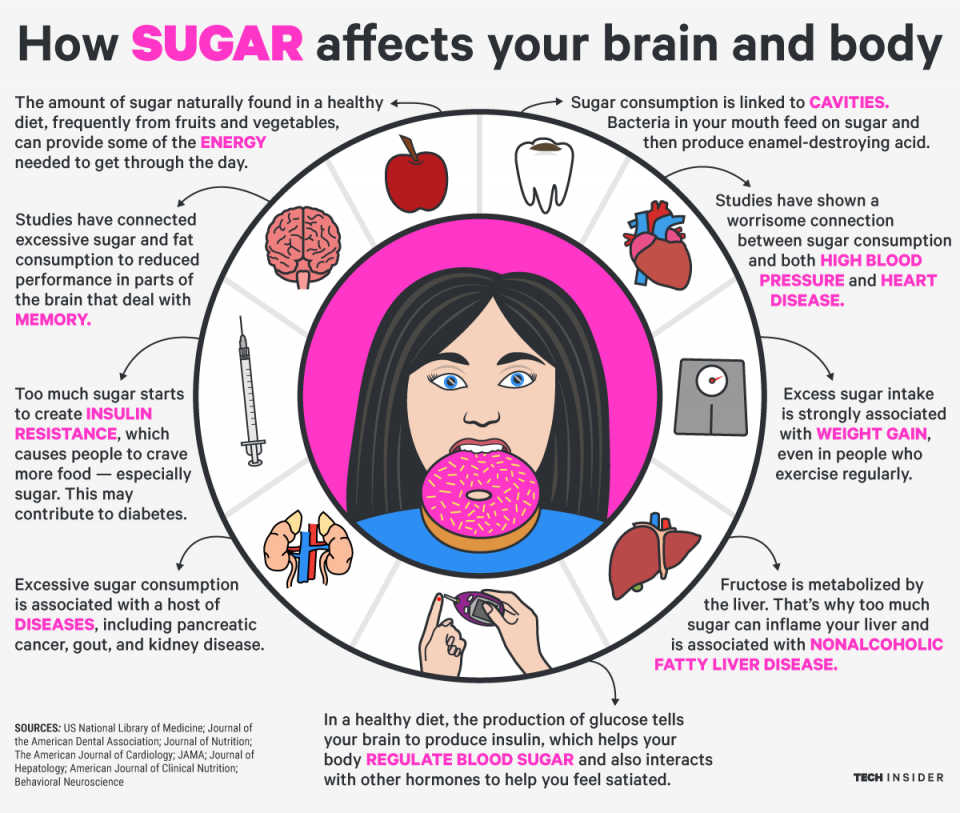The Impact of Sugar on Your Health
Sugar is an ingredient that is widely used in the food and beverage industry. While it may enhance the taste of our favorite treats, excessive consumption of sugar can have serious implications for our health. In this article, we will explore the various ways in which sugar impacts our overall well-being.
Understanding Sugar
Sugar is a simple carbohydrate that is naturally present in many foods, including fruits, vegetables, and dairy products. However, the sugar that we often refer to is added sugar, which is incorporated into processed foods and beverages during manufacturing or preparation.
Added sugars provide little to no nutritional value, aside from the calories they contain. They can be found in various forms, such as sucrose, glucose, fructose, and high fructose corn syrup.
The Role of Sugar in Weight Gain
Excessive sugar consumption can contribute to weight gain and obesity. Foods and beverages high in added sugars are often calorie-dense but nutrient-poor. When consumed in excess, these empty calories can lead to weight gain as the body stores the excess energy as fat. Furthermore, sugary foods and drinks often lack satiety, causing individuals to consume more calories overall.
Several studies have linked high sugar intake with an increased risk of obesity and metabolic disorders, including type 2 diabetes.
Sugar’s Impact on Heart Health
Consuming large amounts of added sugars has been associated with an increased risk of heart disease. A diet high in sugar can lead to elevated blood sugar levels, inflammation, and insulin resistance, all of which are risk factors for cardiovascular problems.
In addition, excessive sugar intake can contribute to high triglyceride levels, reduced levels of good cholesterol (HDL), and increased levels of bad cholesterol (LDL). These lipid abnormalities can further raise the risk of heart disease.
Dental Health and Sugar
Sugar is a major contributor to dental cavities and tooth decay. When we consume sugary foods and beverages, the bacteria in our mouths feed on the sugar and produce acid. This acid attacks the tooth enamel, leading to cavities over time.
Limiting sugar intake and practicing good oral hygiene, such as regular brushing and flossing, are essential for maintaining healthy teeth and gums.
The Effects of Sugar on Mental Health
While sugar does not directly cause mental health disorders, there is evidence suggesting a relationship between sugar intake and mental well-being. Studies have shown that excessive consumption of sugary foods and beverages may contribute to an increased risk of depression and anxiety.
Sugar consumption can lead to spikes and drops in blood sugar levels, affecting mood and energy levels. Additionally, the addictive properties of sugar can result in cravings and dependency.
How to Cut Down on Sugar
In order to reduce the negative impacts of sugar on our health, it is important to minimize our consumption of added sugars. Here are some tips to help you cut down:
Read food labels carefully and avoid products with high amounts of added sugars.
Opt for fresh fruits instead of sugary desserts for a healthier sweet fix.
Avoid sugary drinks like sodas, energy drinks, and fruit juices. Instead, choose water, unsweetened tea, or infused water.
Cook homemade meals using whole, unprocessed ingredients, allowing you to control the sugar content.
Swap sugary snacks with healthier options like nuts, seeds, and vegetables.
Conclusion
Sugar may be a delicious part of our diet, but its excessive consumption can have serious implications for our health. From weight gain and heart problems to dental cavities and mental well-being, the impact of sugar is undeniable. By being mindful of our sugar intake and making healthier choices, we can protect our overall well-being and lead a healthier lifestyle.


